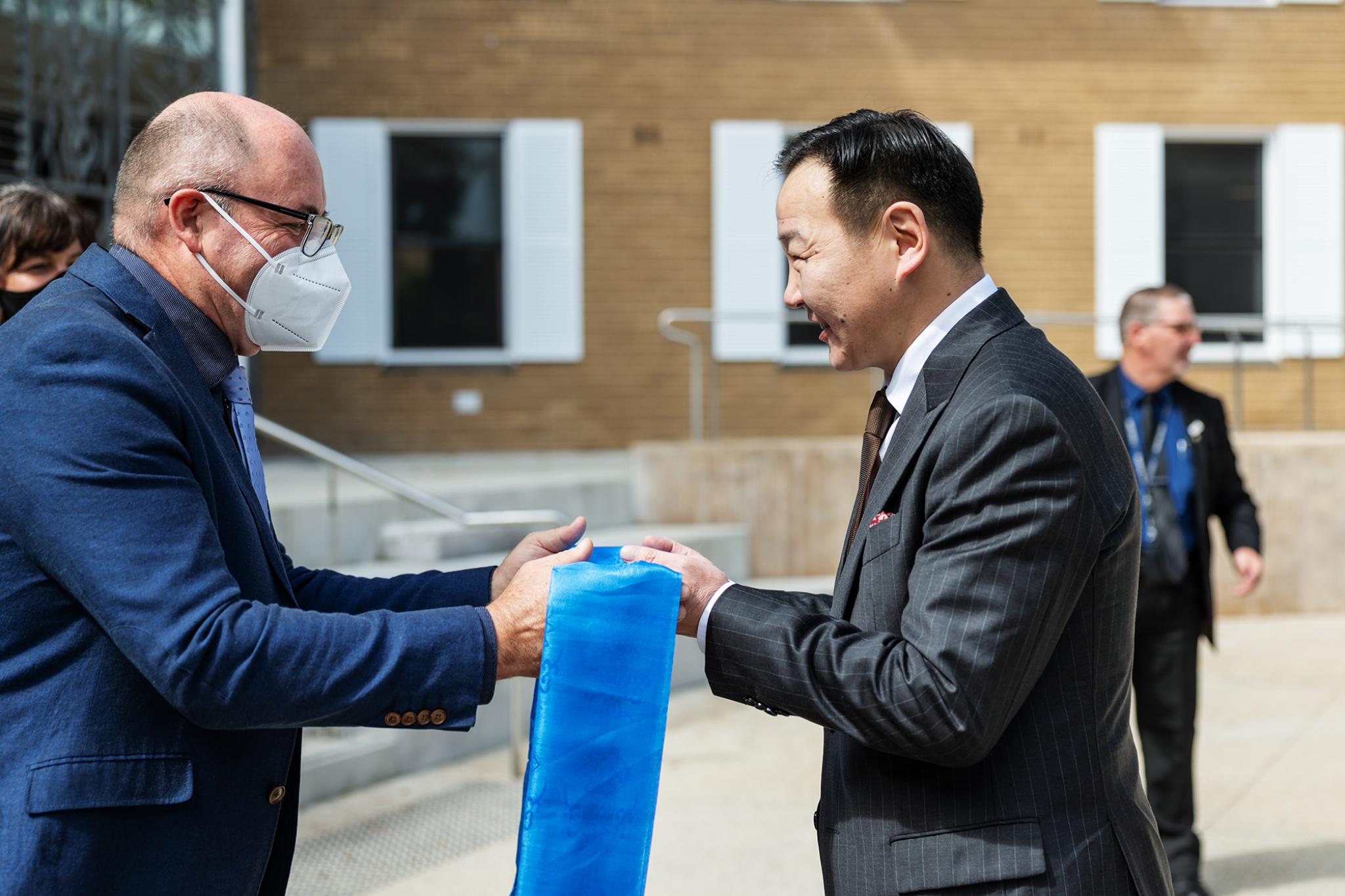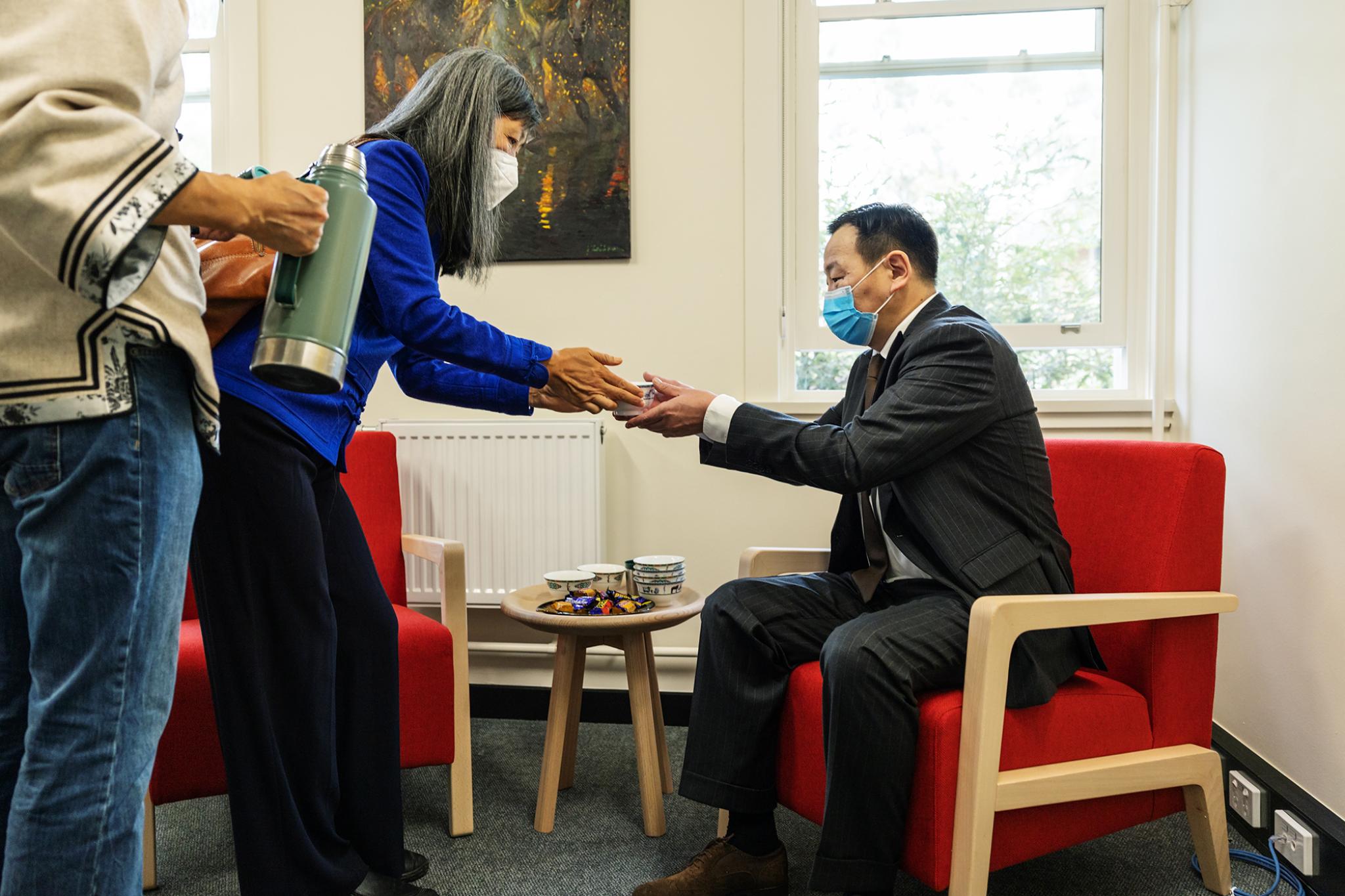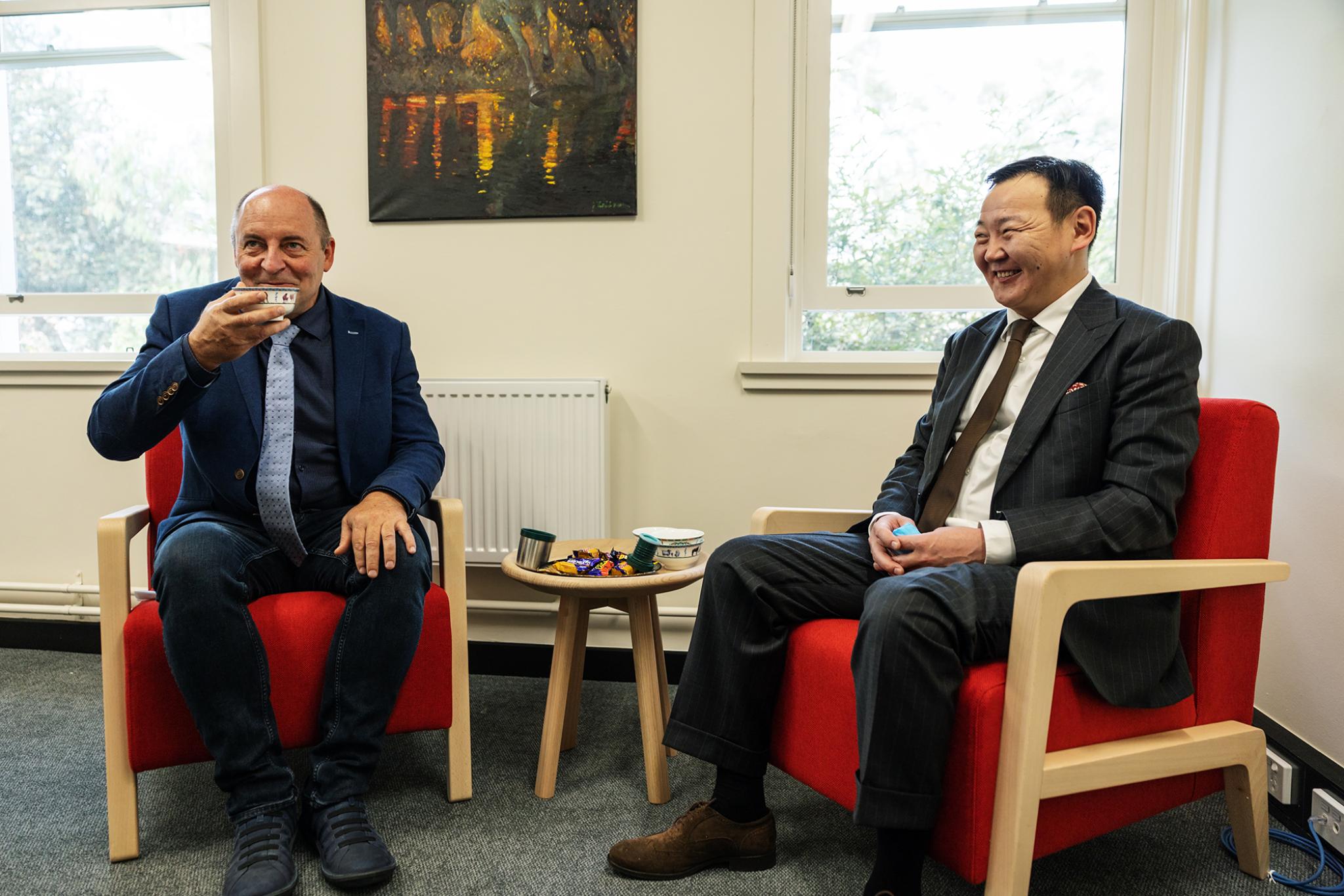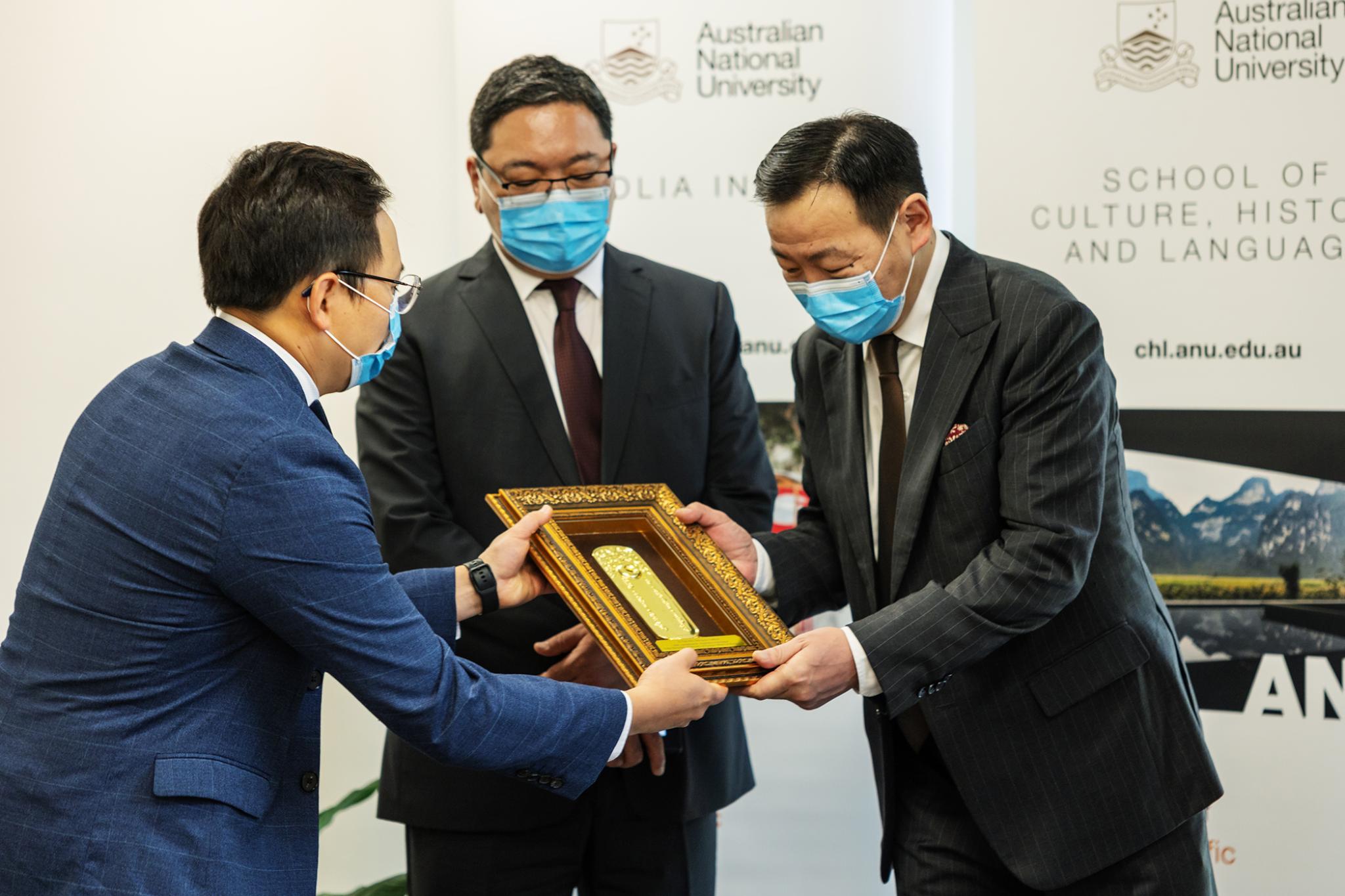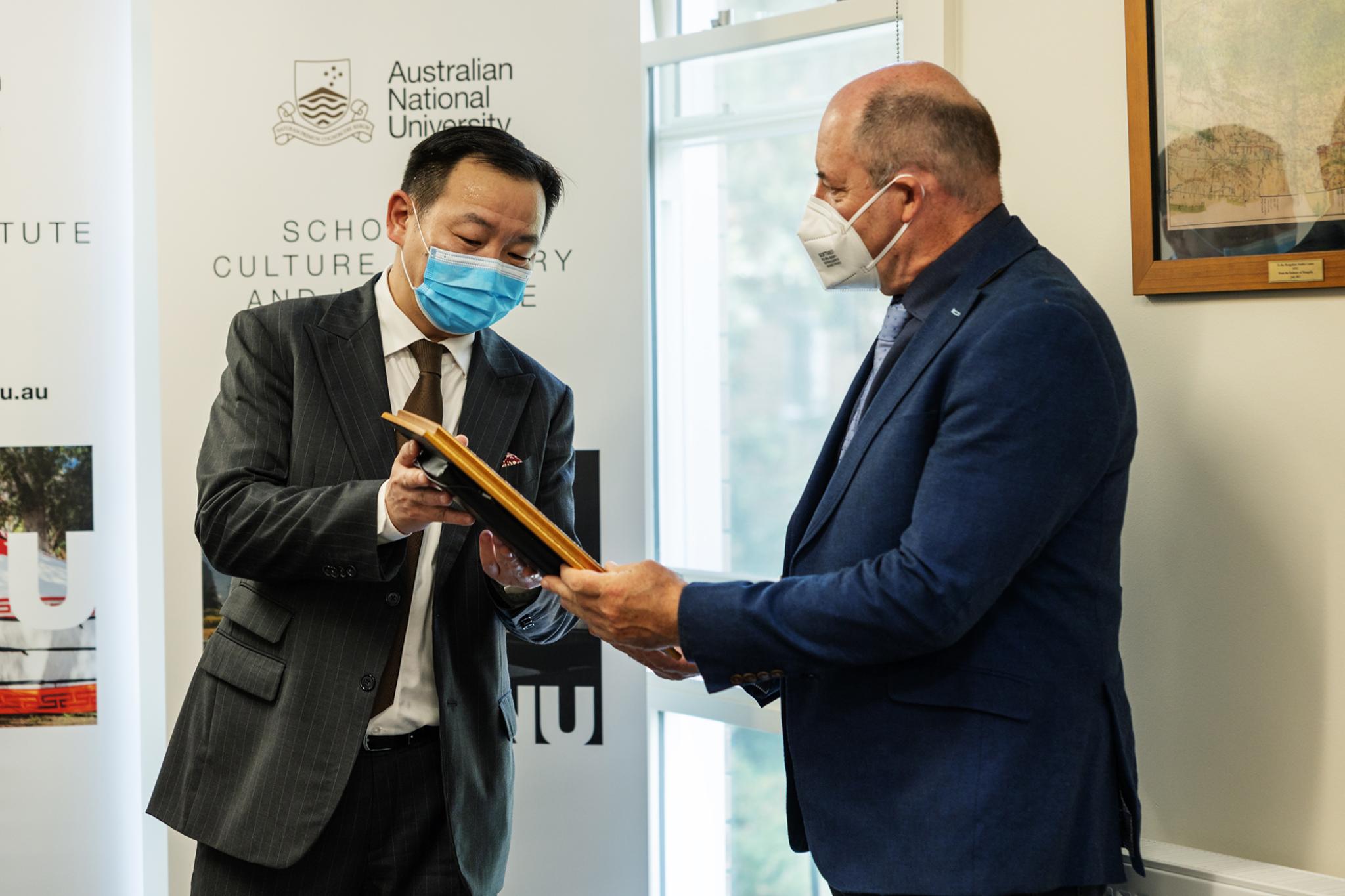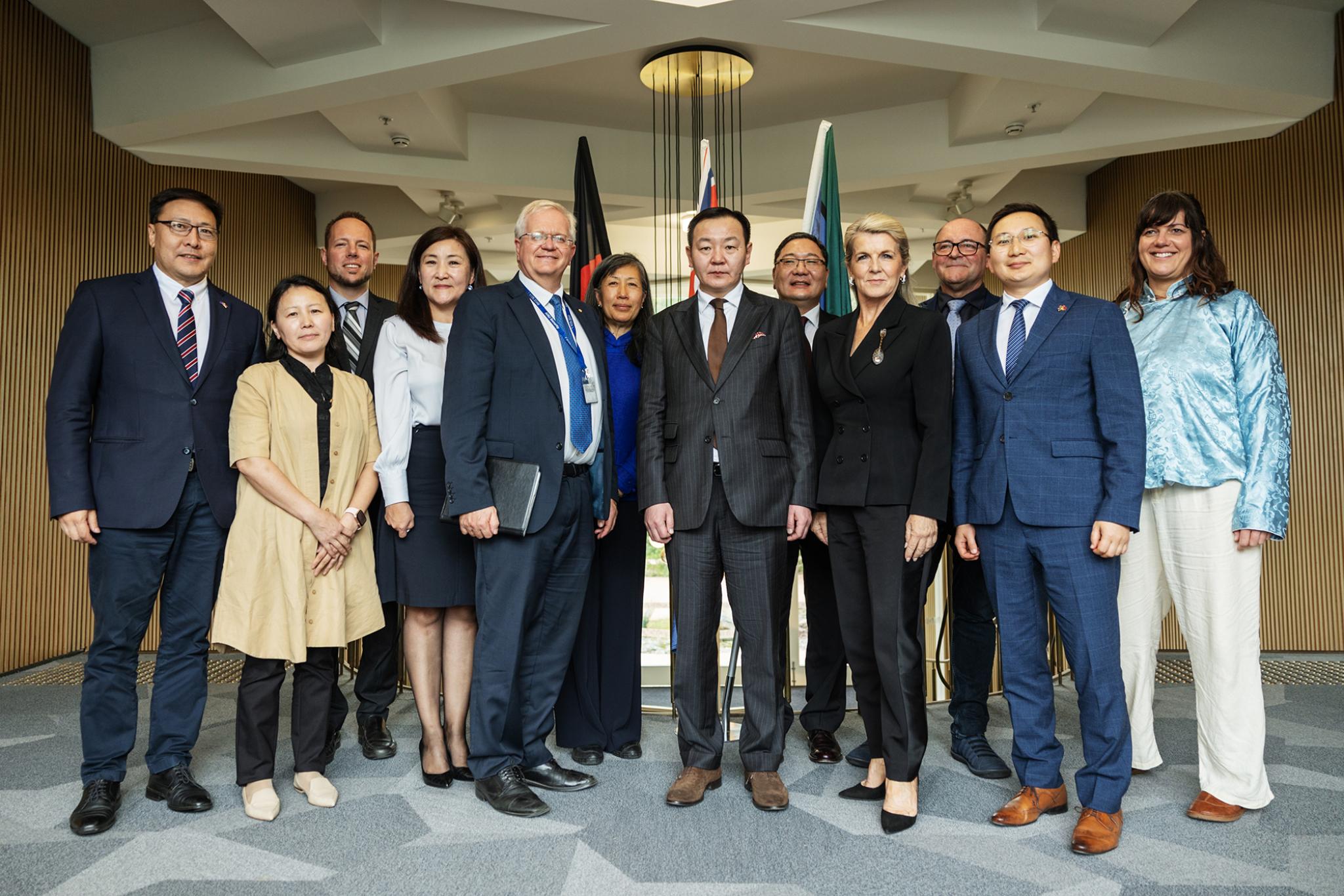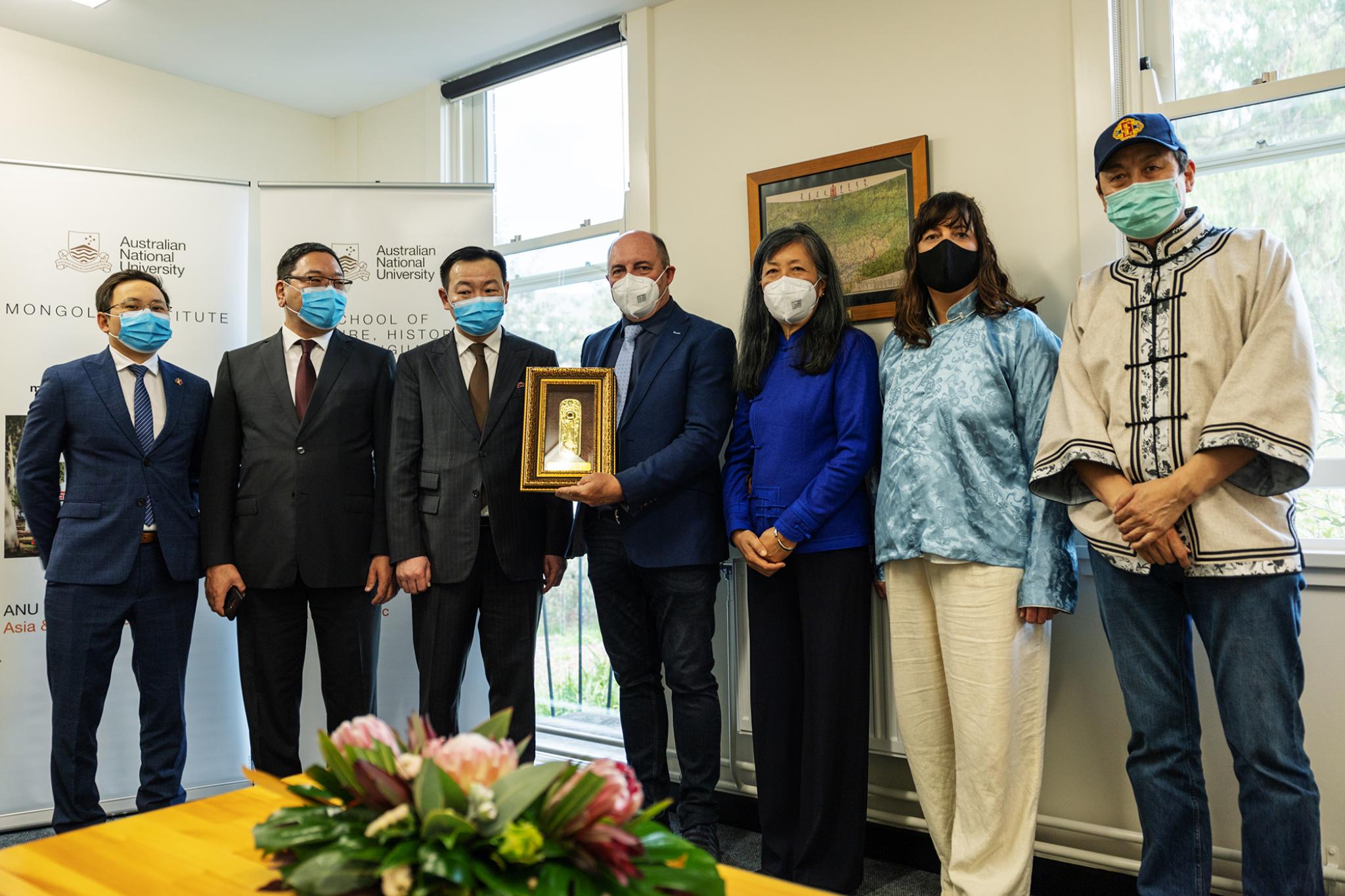Celebrating 50 years of Mongolia-Australia Diplomacy and Collaboration
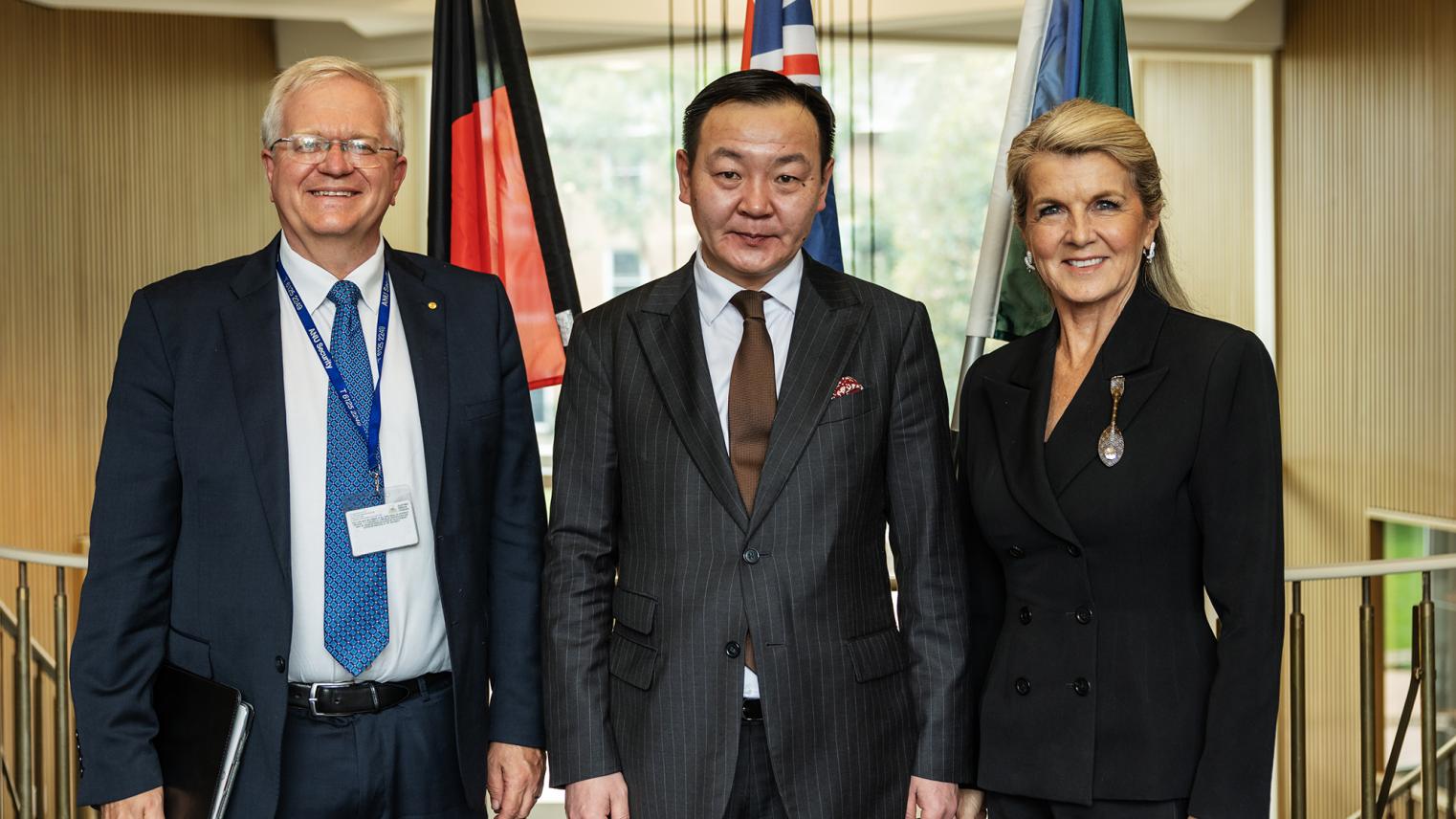
Earlier this week, on 28 March 2022, ANU Chancellor, The Honourable Julie Bishop and Vice-Chancellor Professor Brian Schmidt were delighted to welcome a delegation led by the State Secretary of the Ministry of Foreign Affairs, Mongolia, to campus.
His Excellency Ankhbayar Nyamdorj, State Secretary of the Ministry of Foreign Affairs, Mongolia with ANU Chancellor The Honourable Julie Bishop and Vice-Chancellor Professor Brian Schmidt
Secretary Nyamdorj's visit to Oz is part of celebrations marking the 50th anniversary of diplomatic relations between Mongolia and Australia. The relationship goes back to 1972 and led to accelerated bilateral engagement following democratic and free-market reforms in Mongolia in the early 1990s. This year is, therefore, a significant milestone for both the countries and its people.
ANU has achieved significant undertakings to deliver a Mongolian language minor online in collaboration with the National University of Mongolia since 2018. The University has offered courses in the Mongolian language since 2010, including an online history course through Open Universities Australia, since 2019.
The School of Culture, History & Language (CHL) at ANU has a flagship In-country Study Tour: Modern Mongolia (delayed due to COVID-19 travel restrictions, but was previously run annually.)
The in-country field course has been supported by the Australian Government through a New Colombo Plan scholarship program to support students with travel costs in Mongolia. ANU Chancellor The Honourable Julie Bishop actually reinvigorated that program when she was in politics, and she stated in this meeting that, as her baby, she was very pleased about its ongoing success.
One Decade of the ANU Mongolian Institute
This year also happens to mark the 10th anniversary of the establishment of the Mongolian Studies Centre at ANU. Established in 2011, and the first Mongolian Update at ANU was held in 2012 to mark the 40th anniversary of the Australia-Mongolia diplomatic relationship. Renamed as the ANU Mongolian Institute in 2013, the Centre/Institute has played a pivotal role on the part of ANU to enhance the relationship between the two countries.
The ANU Mongolia Institute was founded to promote Mongolian studies in Australia, including cultural and academic exchange between Australia and Mongolia. It is the first and only regional hub of its kind in the southern hemisphere. It hosts academics who work on Inner Asian-related topics within the humanities and social sciences from all over the world.
An important component of the Institute is convening the Mongolia Update and annual academic conferences. The current Director of the Institute is Dr Natasha Fijn, ARC Future Fellow at CHL, who has conducted research and fieldwork in Mongolia for many years.
The Mongolian Embassy and Government have been generous in supporting the ANU Mongolia Institute. The Mongolian National Fund to support Mongolian Studies, which stands under the President of Mongolia, has offered highly competitive funds to support the ANU Mongolian language program on two occasions. The Embassy has been collaborating with the Institute for many events for more than 10 years during the tenure of three Ambassadors.

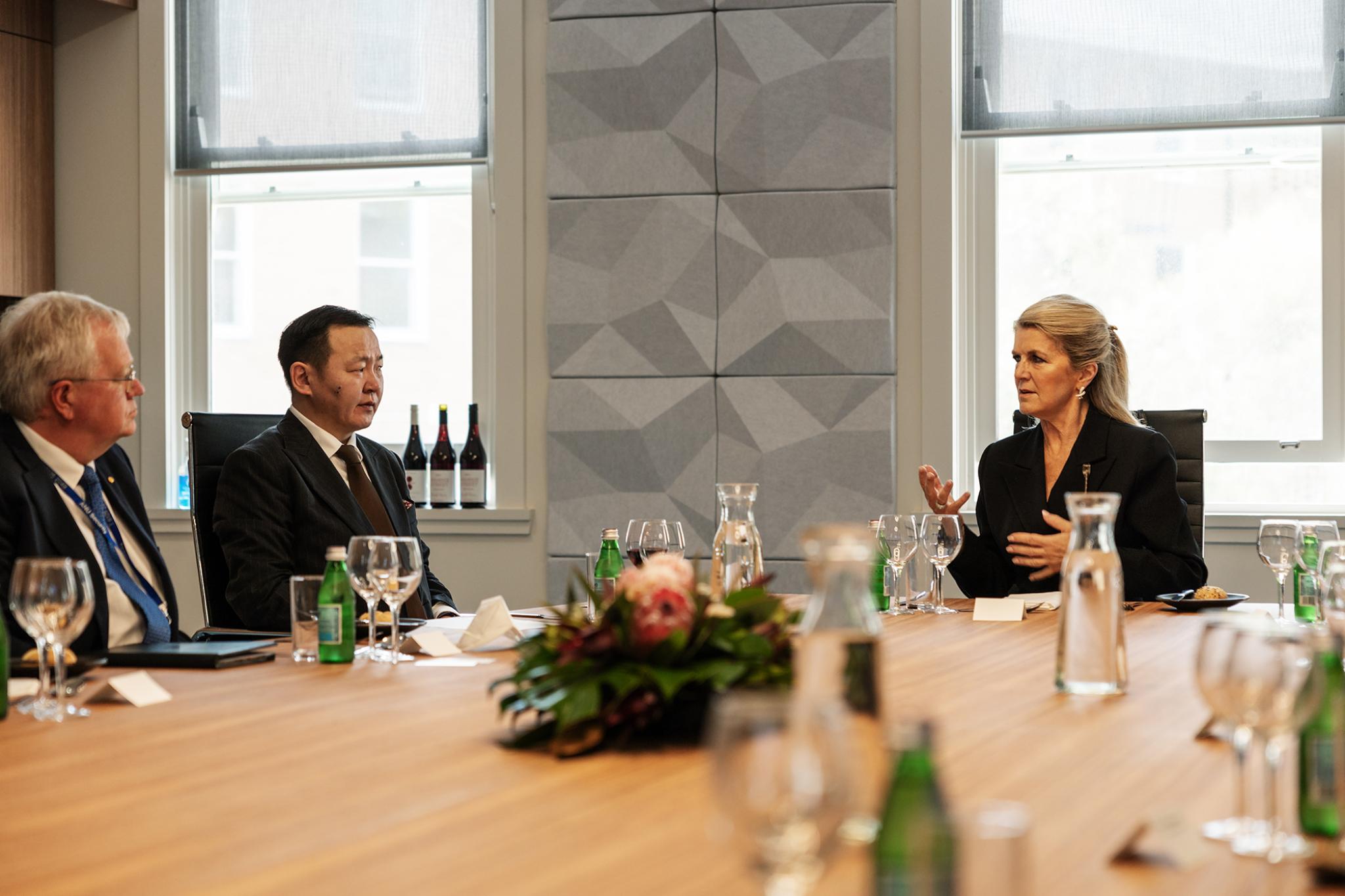
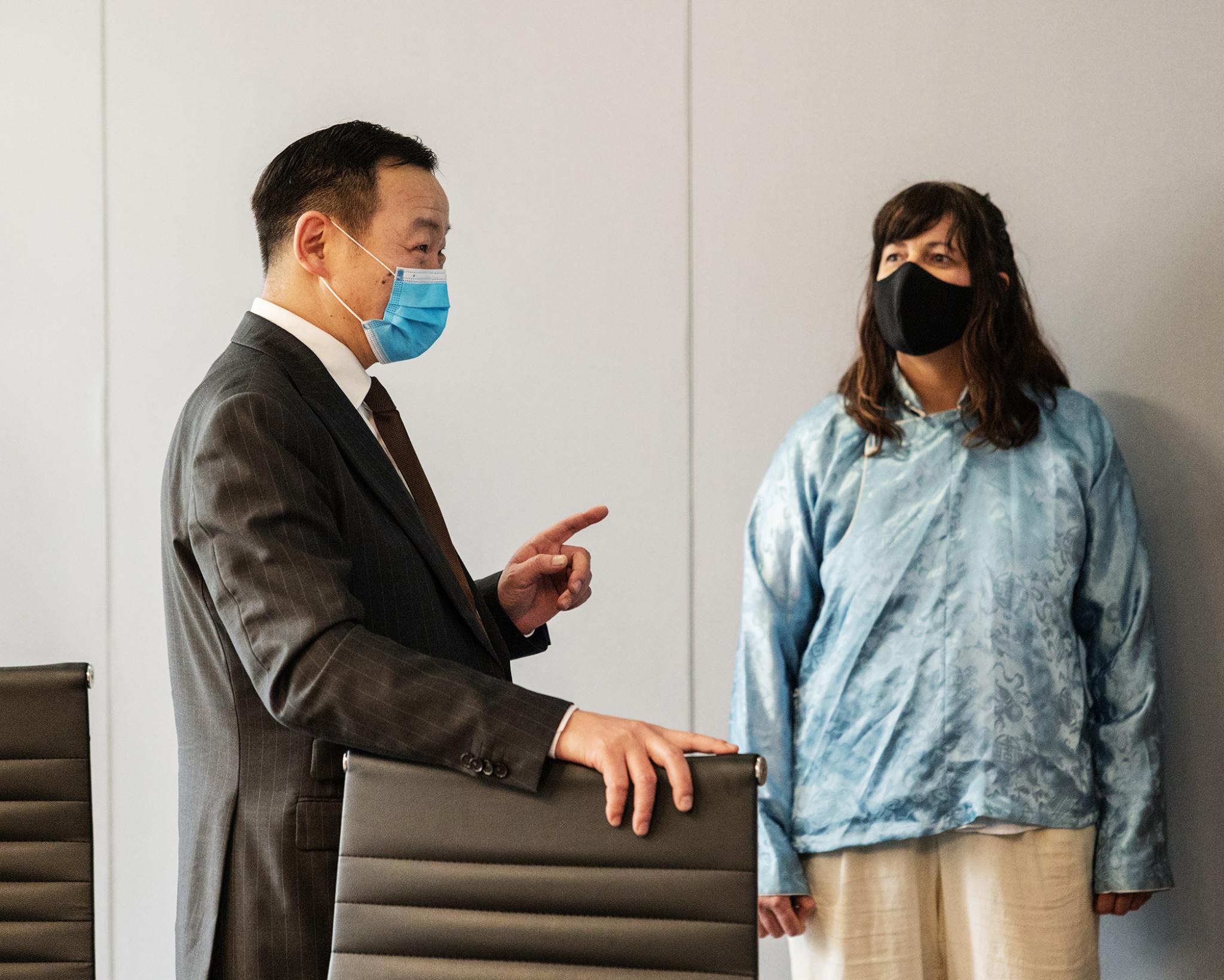
The Delegation and the New Mongolia Room
On the delegation visit of 28 March 2022, CHL Director Professor Simon Haberle welcomed the guests at their arrival outside in accordance with the Mongolian custom—presenting a khadag (ceremonial scarf) and greeting them in Mongolian tavtai morinlo uu (welcome).
He went on to discuss the importance of providing future opportunities for students interested in Mongolia and thanked the State Secretary of Mongolia, His Excellency Ankhbayar Nyamdorj and the Ambassador of Mongolia here in Canberra, His Excellency Davaasuren Damdinsuren, for their ongoing support for Mongolian studies and language learning at ANU.
As part of his official visit, the State Secretary to Mongolia visited the newly established Mongolia Room within the refurbished Coombs building, which will be an important hub in the future where Mongolian studies scholars and visitors will be able to hold meetings and presentations.
The group shared Mongolian tea prepared by CHL Research Fellow Dr Uchralt Otede for the guests. The guests gifted the hosts a replica of a golden gerege or paiza, which was a kind of passport for envoys and officials as well as merchants during the Mongol empire.
The carriers of a paiza could demand services and rations from the civilians. The paiza was given to foreign merchants to encourage trade because with this, they didn’t need to pay taxes. There were three different paiza– golden, silver and bronze. The golden paiza was the most prestigious one issued by the Mongol Khans/emperors.
New Collaborative Pathways
There is a strong collaborative relationship between the Embassy of Mongolia in Australia (Canberra), the Australian Embassy in Mongolia (Ulaanbaatar) and the ANU Mongolia Institute (Canberra).
The new Ambassador to the Embassy of Mongolia is looking at how he can support Mongolian students and academic exchanges between ANU and the National University of Mongolia, which would help to expand study and research collaborations that have already been established between the two universities.
We look forward to another 50 years of positive collaboration and diplomacy between Mongolia and Australia, and to ANU serving as an enabling hub for such ties into the future.
